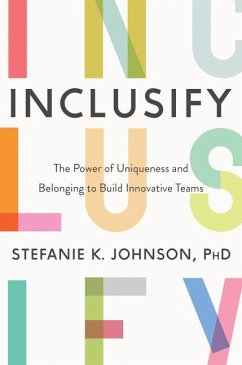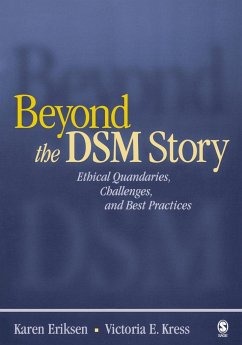Wendy Hollway
Broschiertes Buch
Work Psychology and Organizational Behaviour
Managing the Individual at Work
Versandkostenfrei!
Versandfertig in 1-2 Wochen
Weitere Ausgaben:

PAYBACK Punkte
30 °P sammeln!





Tracing the development of work psychology and organizational behaviour from the early 20th century to the present, this book focuses on the relations between knowledge, power and practice. The author charts the impact of such psychology upon the emergence of new management tools.
Wendy Hollway is Emeritus Professor in Psychology at the Open University. She is a social and qualitative psychologist with a particular interest in psychoanalytic epistemology and its application to empirical research methodology. With Tony Jefferson, she co-authored Doing Qualitative Research Differently: Free Association, Narrative and the Interview Method , which explored the implications of positin a defended subject for interview research (2nd edition, 2013). In subsequent research, she has developed psychoanalytically informed methods in an empirical project on identity changes involved in becoming mothers, using principles of psychoanalytic (infant) observation in parallel with the Free Association Narrative Interview method. Her recent and current writing documents the implications of British post-Kleinian psychoanalysis for data generation, data analysis, writing and research ethics, based on longitudinal data from interviews, reflective fieldnotes, observation notes and observation seminars with 20 "becoming mothers" in Tower Hamlets. She is a co-founder of the British Psychosocial Studies Network and the European Psycho-societal Research Group. In 2011, she was a visiting Fellow at the Oslo Centre for Advanced Study, in a program entitled "Personal Development and Socio-cultural Change," directed by Profs Harriet Bjerrum Nielsen and Hanne Haavind, from which collaborations continue.
Produktdetails
- Verlag: SAGE Publications Inc
- Seitenzahl: 224
- Erscheinungstermin: 17. April 1991
- Englisch
- Abmessung: 216mm x 140mm x 13mm
- Gewicht: 278g
- ISBN-13: 9780803983540
- ISBN-10: 0803983549
- Artikelnr.: 29867106
Herstellerkennzeichnung
Libri GmbH
Europaallee 1
36244 Bad Hersfeld
gpsr@libri.de
`should be read by all occupational psychologists (both academics and practitioners) who can only benefit from the challenging examination of the political bases of their work that the book undertakes. It fills a gap which has existed for far too long in occupational psychology' - Michael West, MRC/ESRC Social and Applied Psychology Unit, University of Sheffield `Hollway presents a well-researched and well-explicated personal construal of the historical development of occupational psychology, particularly the interdependences between scientific knowledge, power relations in the production process and our everyday practices as occupational psychologists... the author intersperses a reflective and often highly critical thesis of the naive,
Mehr anzeigen
managerialist and manipulative precepts underscoring occupational psychology as a social science.... As a timely intervention and a much-needed challenge to these precepts, the book is to be congratulated.... Perhaps the real strength of this book lies in its dismissal of the model of the `expert' occupational psychologist supposedly standing in detached isolation from her or his subject matter and studying it with appropriate methods in the attempt to measure its properties. Instead, Hollway continually forces the reader to contextualize their own experiences and actions as psychologists.... I would recommend this book to others as a laudable intervention, but more importantly as one which offers an alternative perspective of both the discipline of occupational psychology and of the actions of practising psychologists working either in industry or in academia' - The Occupational Psychologist
Schließen
Für dieses Produkt wurde noch keine Bewertung abgegeben. Wir würden uns sehr freuen, wenn du die erste Bewertung schreibst!
Eine Bewertung schreiben
Eine Bewertung schreiben
Andere Kunden interessierten sich für














